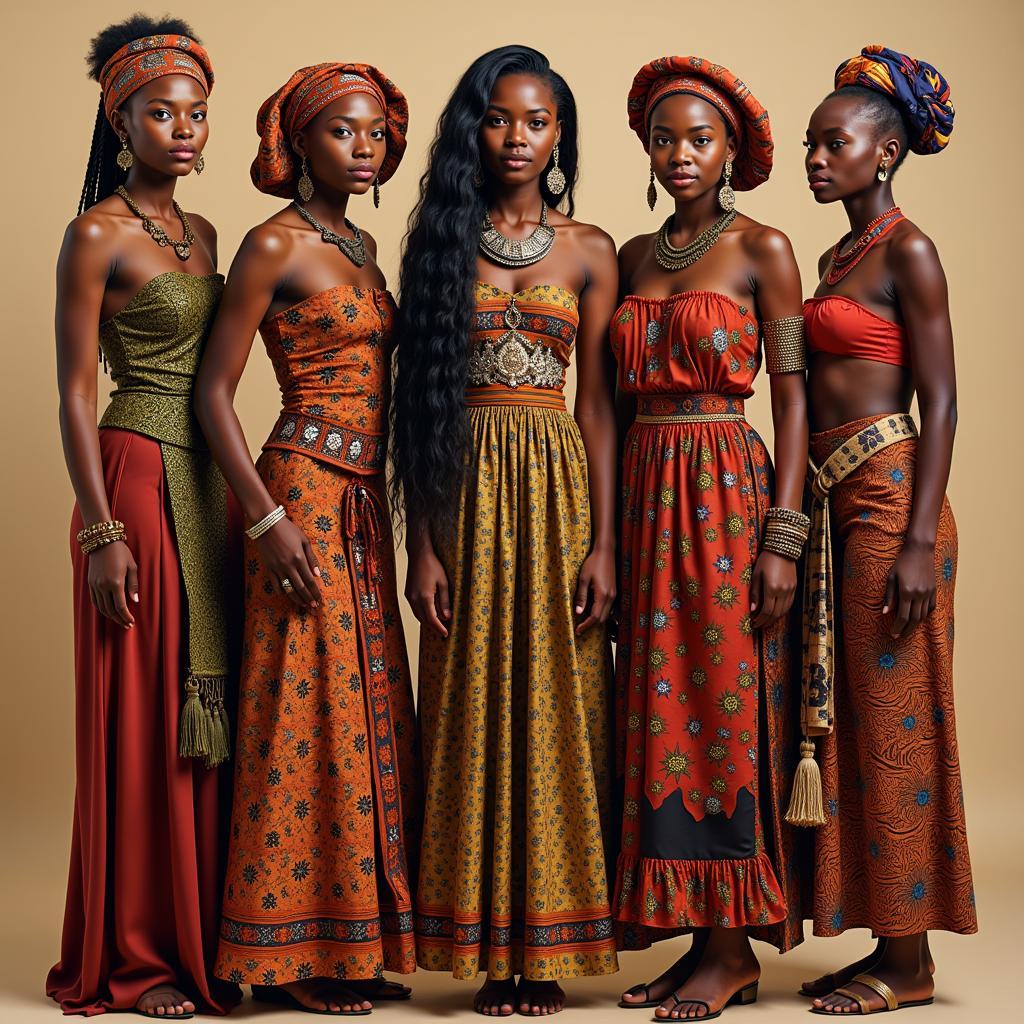Does African Black Soap Burn Skin? Unraveling the Truth
African black soap has taken the skincare world by storm, celebrated for its natural origins and purported benefits. But amidst the hype, a common concern arises: Does African black soap burn skin? Many users report sensations of tingling, burning, or tightness, leading to confusion and apprehension.
This article delves into the truth behind these reactions, exploring the components of authentic African black soap, potential causes for skin sensitivity, and tips for safe and effective use. We’ll separate fact from fiction, empowering you to make informed decisions about incorporating this traditional cleanser into your skincare routine.
Deconstructing African Black Soap: What’s Inside?
Authentic African black soap, often referred to as “black soap” or “Anago soap,” originates from West Africa, particularly Ghana. Unlike commercially produced soaps, it boasts a simple, natural ingredient list, typically comprising:
- Plantain Skins: Rich in vitamins A and E, and antioxidants, contributing to skin healing and protection.
- Cocoa Pods: Containing antioxidants and natural emollients, promoting skin hydration and elasticity.
- Palm Oil: Providing a moisturizing base for the soap, rich in vitamins and antioxidants.
- Shea Butter: Known for its deeply nourishing properties, soothing irritation and promoting skin elasticity.
- Water: Used to blend and solidify the ingredients.
Notably absent are harsh chemicals, artificial fragrances, and colorants often found in commercial soaps, which can irritate sensitive skin. The natural variations in ingredients and the handcrafted production process result in the soap’s unique color and texture.
The Burning Question: Why Does My Skin Tingle?
While African black soap is generally considered safe for most skin types, the tingling or burning sensation some individuals experience can be attributed to several factors:
- Deep Cleansing Action: The soap’s high saponification level (the process of turning fats into soap) gives it potent cleansing properties, effectively removing dirt, oil, and makeup. This deep cleansing can sometimes lead to a temporary tingling sensation, particularly for those with sensitive skin or new to using the soap.
- Skin pH Imbalance: African black soap is naturally alkaline, while our skin’s pH is naturally acidic. This difference in pH can disrupt the skin’s barrier, leading to dryness, irritation, or a burning sensation, especially if the skin is already compromised.
- Ingredient Sensitivity: While natural, certain ingredients like plantain skins or cocoa pods can trigger allergic reactions or sensitivities in some individuals. If you have known allergies to these ingredients, it’s crucial to patch test the soap before applying it to larger areas.
- Overuse or Improper Use: Using African black soap too frequently or leaving it on the skin for an extended period can strip the skin of its natural oils, leading to dryness, irritation, and a burning sensation.
Mitigating the Burn: Tips for Safe and Effective Use
While experiencing a tingling sensation with African black soap is not uncommon, it’s crucial to distinguish between a normal reaction and a sign of irritation. Here are essential tips for incorporating African black soap into your routine safely:
- Patch Test First: Before applying to your entire face or body, test a small area of skin on your inner arm. Observe for any adverse reactions like redness, itching, or burning for 24 hours.
- Don’t Overdo It: Limit use to once or twice daily, depending on your skin’s sensitivity. For sensitive skin, start with once every other day and gradually increase frequency as tolerated.
- Lather Up Gently: Avoid harsh scrubbing. Instead, create a gentle lather in your hands with water and apply to the skin using circular motions.
- Rinse Thoroughly: Ensure all soap residue is removed, as leftover soap can contribute to dryness and irritation.
- Follow with a Moisturizer: Always moisturize your skin immediately after using African black soap to restore hydration and balance the skin’s pH.
- Listen to Your Skin: If you experience persistent burning, redness, itching, or discomfort, discontinue use and consult a dermatologist.
Beyond the Burn: Exploring the Potential Benefits
When used correctly, African black soap can offer various benefits for the skin:
- Deeply Cleanses: Effectively removes dirt, oil, makeup, and impurities without stripping the skin of its natural oils.
- Exfoliates Gently: The natural texture of the soap helps remove dead skin cells, promoting a brighter complexion.
- May Help with Acne: Its antibacterial and antifungal properties can help manage acne breakouts and prevent future ones.
- Soothes Skin Conditions: May help alleviate symptoms of eczema, psoriasis, and other skin conditions due to its anti-inflammatory properties.
- Suitable for Diverse Skin Types: From oily to dry, sensitive to acne-prone, African black soap can be beneficial for various skin types when used mindfully.
Navigating the World of African Black Soap: A Final Word
The question of whether African Black Soap Burns Skin doesn’t have a simple yes or no answer. It’s about understanding its unique properties, potential effects on different skin types, and the importance of mindful use.
By following the tips outlined in this article, you can confidently incorporate this traditional cleanser into your skincare routine, harnessing its potential benefits while mitigating the risk of irritation. Remember, listening to your skin is key. If you experience any concerns, consult a dermatologist for personalized advice.

